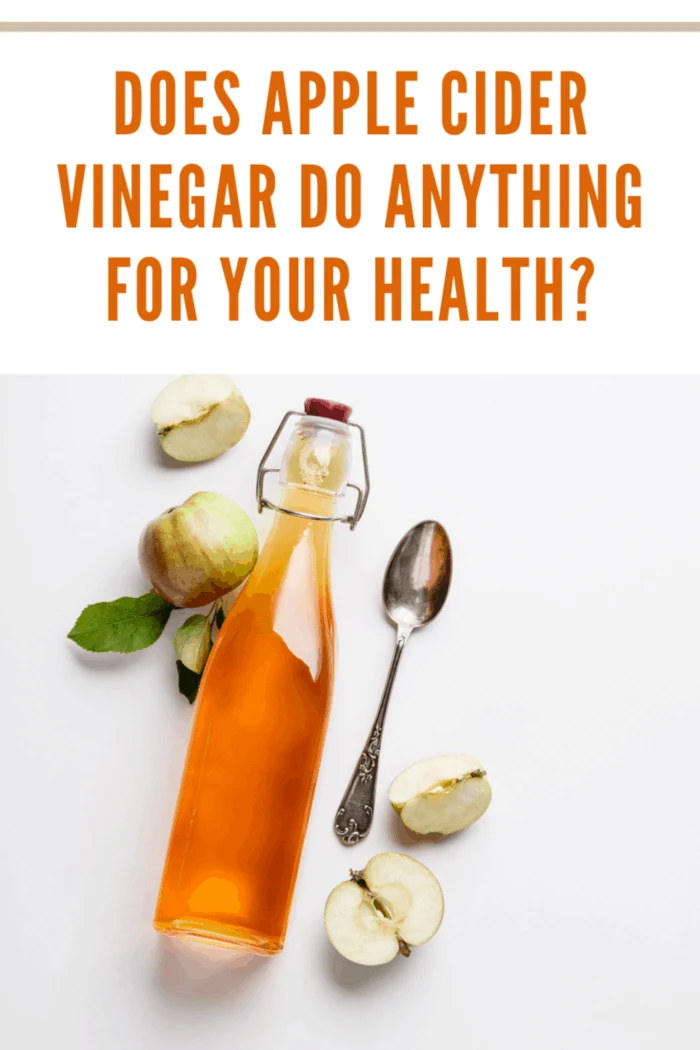Health gurus, alternative medicine enthusiasts, crash dieters, and your sister have been trying to tell you about the benefits of drinking apple cider vinegar for years. Still, you have never quite been part of the craze. However, if you are looking for simple ways to boost your health and wellness — or perhaps a miracle treatment for burning fat — you might be more curious about apple cider vinegar’s benefits. Does this strong-smelling pantry staple do anything to improve your health, or is it just a health trend with no scientific evidence to back it up?

It Depends
Unfortunately, the answer isn’t necessarily as easy as an unequivocal “yes, you should take it” or “no, it does nothing.” Ultimately, whether you should invest in apple cider vinegar as a supplement is how you interpret what we currently know about its effects on mammals. Believe it or not, health researchers have devoted quite a bit of time and effort to better understanding the effects of taking apple cider vinegar, and there is a wealth of data regarding its impacts on health.
Apple Cider Research
The most robust studies are animal models, meaning researchers used mice and rats instead of human subjects to observe the effects of apple cider vinegar. Perhaps the most famous study dosed obese rats and mice with acetic acid, the acid within apple cider vinegar. Its findings suggest that the acid can prevent fat deposition and boost metabolism. Here’s a link to that study: pubmed.ncbi.nlm.nih.gov.
There has been some related research with human subjects. For example, in 2009, a study with 175 participants measured long-term weight loss after certain daily vinegar consumption; in this case, the vinegar group enjoyed modest weight loss while the control group did not. More recently, a similar study required participants to follow a restricted-calorie diet in addition to vinegar consumption, and the group consuming vinegar lost a larger amount of weight.
However, before you take this research as indisputable proof of apple cider vinegar’s usefulness, it is important to realize that dietary studies like these are rarely as easy to interpret as alternative health gurus would have you believe. Many of these studies have sample sizes that are too small and therefore statistically insignificant; other studies don’t last long enough to collect a satisfactory amount of data. Even when a dietary study’s methods are beyond reproach, most researchers recognize that dietary supplementation doesn’t always work for everyone because people have unique genetics, digestion, metabolism, and other physical factors affecting how they take in and use compounds.
Should You Take Apple Cider Vinegar?
Apple cider vinegar could provide a small boost to your metabolism and help you lose fat in conjunction with healthy eating habits and regular exercise. Taking a tablespoon or two of apple cider vinegar every day is unlikely to hurt you; it might taste unpleasant and cause some stomach upset, but apple cider vinegar isn’t poisonous or likely to cause long-term harm to any bodily system. Thus, if you find the existing evidence about apple cider vinegar’s effects compelling, you shouldn’t be concerned about taking it as a dietary supplement.
How You Can Add Apple Cider Vinegar To Your Diet
If you have decided that apple cider vinegar is for you, here’s some good news: You probably don’t have to take a shot of the stuff straight. Though most studies, including vinegar, had participants drink their vinegar dose on their own, you might choose a more palatable way to ingest your daily vinegar. Some ideas for this include:
Vinegar vitamins.
Reputable supplement brands have begun producing apple cider vinegar vitamins and gummies in response to the widespread popularity of the supplement.
You can find high-quality apple cider vinegar products online through merchants like vitaminshoppe.com or brick and mortar stores.
Vinegar drinks and smoothies.
You can mix apple cider vinegar into other drinks, which can help mask the sour taste of the liquid and provide other dietary boosts like fiber and probiotics.
You should feel free to experiment with your vinegar cocktails.
Should you drink coffee?
Should you drink red wine?
Should you drink apple cider vinegar?
These questions tend to be easier to ask than answer, so frustratingly, the response from healthcare professionals is usually “it depends.” Given more information about apple cider vinegar, you can decide whether to incorporate this supplement into your daily diet.
